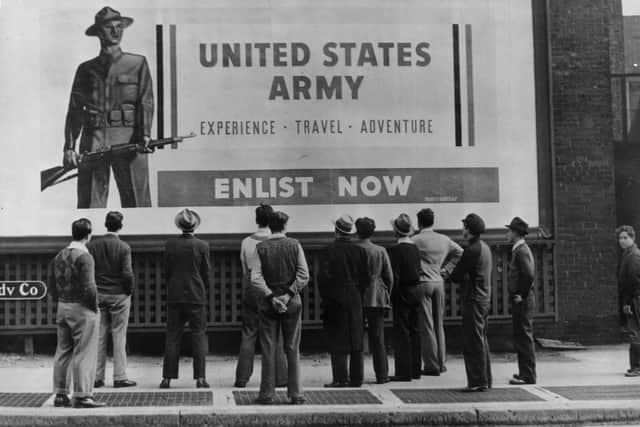Book review: The Caretaker, by Ron Rash
There is no living American novelist I enjoy and admire more than Ron Rash. I’ve praised him in The Scotsman before, going so far as to call him the best American novelist I has come across in the last 20 years. Make that 30 or more now. Yet, though he wins prizes in the States, he isn’t, I think, nearly as well known here as he should be, though he has also been praised by other writers, Irvine Welsh among them. This may be because his novels and short stories make no great statements. They don’t deal with public or political issues. They are not very discussible.
He is a Southern writer, but not greatly concerned with memories of the Confederacy or indeed the Civil Rights Movement. This novel is set in North Carolina and Tennessee. He writes about small-town or rural America, about farmers scratching a living on poor land, storekeepers, parsons, doctors, about young men, some of whom are violent, and their girlfriends.
Advertisement
Hide AdThe Caretaker is set in the early Fifties, so you might call it historical – even small-town America will have changed since. Yet I would call it timeless inasmuch as it’s about relationships love, friendship, families, loyalties and deceit.


It begins in Korea. Jacob, a young man recently drafted, is attacked on sentry duty, and seriously wounded. He has recently married a girl called Naomi who is expecting their child. His parents, prosperous small business people, think the girl a slut and will have nothing to do with her. Jacob’s best friend, Blackburn, has promised to look after her. Blackburn is the caretaker of the title – in two senses. Besides caring for Naomi, he is employed as the church verger, responsible also for the graveyard. Blackburn, with his face distorted as a result of polio in childhood, is the true hero of the novel, a genuinely good young man – yet he is portrayed without sentimentality of mawkishness. After Jacob’s father publicly insults Naomi, Blackburn drives her across the State boundary to her father’s small-holding in Tennessee.
A telegram announcing that Jacob is seriously wounded arrives. Out of local sympathy, the Western Union clerk takes it first to Jacob’s parents. What follows – a horrible plot to destroy the marriage – is in bald terms scarcely credible. It is a measure of Rash’s deep understanding of his people and their milieu – the society of self-righteous small-town backwater country – that he makes the consequences of their decision completely and horribly convincing. It is of course quite possible that the story arises from some reported memory of some similar set of events a couple of generations ago. But it is equally likely that it is inspired simply by Rash’s deep understanding of the country and society that is his habitual subject. One way or another, he makes it all ring marvellously, if also horribly, true. That said, it would be misleading to stress the dark side of the novel, for it is also a celebration of kindness, compassion and care for others. Blackburn is a true hero but not alone in being good and admirable. Aomi is a lovable girl, treated without sentimentality. There is a fine minor character in the town doctor. The novel is also splendid in its evocation of time and place, and it is written with the fine economy characteristic of all Rash’s work. A lesser novelist would have stretched this out to 600 pages or even more.
Rash always writes with lovely authority and economy – he is also a master of the short story. You don’t want to gallop through his books, but to read them slowly, savouring the rhythms of his prose, dwelling on the richness of his evocation of daily life and of the characters who inhabit his stories and novels. He is a writer who never sets out to impress but is always impressive. There are novels you enjoy and forget. Ron Rash is one whose books always invite a second reading; they are true to life, to experience and imagination – rich treasure. The Caretaker is one of his best.
The Caretaker, by Ron Rash, Canongate, £16.99